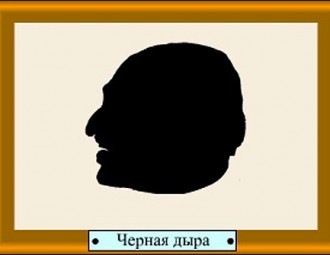Siarhei Nikaliuk: “Elections” in Belarus prolong the authority of those in power
 2005.novayagazeta.ru
2005.novayagazeta.ru
Belarusans don’t make choice; they are waiting for the situation to change or to get suggestions for a new idol.
Independent Institute of Socio-Economic and Political Studies (IISEPS) published the results of the social poll conducted in March.
The social poll indicated decline of Lukashenka’s electoral rate, though his approval rate hasn’t changed much. In September 2014 he was trusted by 53.3%, in December by 49.9%, and in March by 48.8%. In September 2014 45.2% were ready to vote for Lukashenka at the president election, 40% - in December, and 34.2% in March.
23.2% of voters are ready to vote for a democratic candidate.
The biggest electoral rate (according to an open poll) was given for Uladzimir Niakliaeu – 7.6% (with 3.5% in December), then goes Mikalai Statkevich with 4.5% (2.7% in December), Aliaksandr Milinkevich with 1.6% (2.8% in December), Anatoly Liabedzka with 2.9% (0.8% in December), and Siarhei Kaliakin with 1.6% (0.7% in December).
Siarhei Nikaliuk, an IISEPS expert, commented on the most noticeable tendencies of the March social poll in the interview with the “EuroBelarus” Information Service.
- Why Lukashenka’s rate is continually falling? Does social being determine consciousness?
- Lukashenka’s rate isn’t falling very much. Rate of trust hasn’t basically changed, and electoral rate reduced by about 6% because of the economic crisis. I don’t think this is a lot.
- How will low rate influence the course of the president campaign? Or is it a symbolic indicator that should be neglected?
- The nature of rate in Belarus and in the West is absolutely different. The rate itself hardly depends on the society; neither does the Belarusan state. Rate is rather demonstrating the self-sentiment of the society and indicates society’s satisfaction or dissatisfaction with the authorities.
Before Yeltsin’s retirement, his rate fell to 5%. However, it didn’t cause changes in the society, though became very concerning for Yeltsin’s immediate environment: it is very dangerous to have a leader with basically zero rate in nomenclature. That is why “plan Putin” appeared.
- Belarusans are choosing with their stomach. Economic health is continually decreasing: an average amount of income for one family member reached $211 in March, reducing from 285$ in December 2014. During the first quarter the number of those, who believe that Belarusan economy is in crisis, has increased from 52/3% to 67.5%. How will the decrease in the economic well-being influence political preferences of Belarusans?
- The term “political preferences” presupposes certain choice made by Belarusans, whereas no such thing is happening in Belarus. Lukashenka’s rate is living his own life. The thing is that the decrease in Lukashenka’s rate doesn’t lead to the growth of opposition’s rate. These are absolutely different worlds that do not depend on each other.
Representatives of authoritarian majority in this situation won’t be supporting opposition candidates, but will be waiting when the situation is going to change or suggest a new idol.
- Should we consider opposition’s rate as an independent phenomenon at all?
- We shouldn’t even consider elections as an independent phenomenon. Mistakenly, we see Belarusan election as a confrontation between the opposition and the authorities according to the Western pattern. There is confrontation, but it has no relation to what is happening in Belarus after 1996. There is no real process in Belarus.
The Western election modifies the country’s development path. “Elections” in Belarus prolong the authority of those in power. Authoritarianism in the modern world is living through the election process.
- The research conducted by the IISEPS indicated growth of pro-Russian moods. Russia hasn’t stopped its war in Ukraine, the threat of “green men” in Belarus has increased; Moscow cut Belarus’ content: instead of the requested $2 billion it has only allotted $110 million. Why do Belarusans still find the East appealing?
- Belarusan society takes developments in Russia close to heart. I have said more than once: reaction to Russian processes is a reaction of a Soviet person, and 60% of Belarusan society are homo soveticus.
We mistakenly see Belarus as a state with clear boundaries, with the society, whose behavior and ideas are formed under the influence of the local elite and counter élite – the picture borrowed from the XIX century. But last year we witnessed the phenomenon that I called “Anomaly-2014”: the growth of positive moods in the society was growing, although the population experienced stagnation of incomes.
“Anomaly-2014” gave birth to the Russian TV-version of Ukrainian events. It was formed regardless the wishes and actions of the authorities and opposition.
Lukashenka is knowingly repeating the: Belarus is a country with an open economy. Indeed, Belarus is a country that is situated in between all economic turbulences. Stable growth of Belarusan economy since 2003 is exclusively the indirect result of growth of prices on oil. High prices on oil filled Russia with petrodollars, which also positively affected Belarusan economy. But there is no particular merit of the Belarusan authorities there: growth of prices on oil slowed down the rotting of the Belarusan model, and prices’ decline today speeds up its decay.
If nothing happens in Russia before the presidential election that is to take place in November in Belarus, situation will be developing in accordance with the established scenario.
-
03.01
-
07.10
-
22.09
-
17.08
-
12.08
-
30.09








































